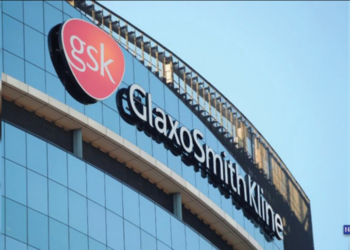GlaxoSmithKline Consumer Nigeria Plc (“GSK Plc” or “the Company”) is a public limited liability company with 46.4% of the shares of the Company held by Setfirst Limited and Smithkline Beecham Limited (both incorporated in the United Kingdom), and 53.6% held by Nigerian shareholders.
The ultimate parent and controlling party is GlaxoSmithKline Plc, United Kingdom (GSK Plc UK). The parent company controls GSK Plc through Setfirst Limited and SmithKline Beecham Limited.
The Company recently published its unaudited first quarter (Q1) 2021 consolidated financial statements for the period ended 31 March 2021.
READ: GSK Consumer Nigeria Plc records 3.34% increase in 2020 9M revenues
The results were less than impressive with several key indicators showing a year-on-year decline. For example, Group revenue (turnover) declined from ₦4.99 billion in Q1 2020 to ₦3.46 billion in Q1 2021 a drop of over 30.66%. The revenue drop was due to a sharp decline in the local sale of its healthcare products.
Total loss after tax as of Q1 2021 was ₦238.07 million compared to a profit after tax of ₦113.47 million for the same period to Q1 2020.
The company is essentially divided into two segments viz: Consumer Healthcare and Pharmaceuticals. While the Healthcare segment was largely profitable in Q1 2021 (making a profit before tax of ₦ 8.73 million by March 31, 2021, the pharmaceuticals segment made a loss of ₦262.93 million in the same period.
READ: GlaxoSmithKline Nigeria announces changes in its board
The Consumer Healthcare segment of the company consists of oral health products, digestive health products, respiratory health products, pain relievers, over the counter medicines, and nutritional healthcare; while the pharmaceutical segment consists of antibacterial medicines, vaccines, and prescription drugs. While goods for the consumer healthcare segment are produced in the country, the pharmaceuticals are all imported.
The largely imported pharmaceutical products are thus exposed to the vagaries of foreign currency fluctuations coupled with a negligible to no revenue from the foreign sale of its healthcare products (same as in Q1 2020) as it barely exports its products out of the country.
The cost of importing the antibacterial, vaccines and prescription drugs, and the significant local operating expenses wiped off the marginal gross profits made by the pharmaceutical segment of the company. In effect, the gross profit of ₦508.12 million made by the pharmaceutical segment of the company was eliminated by an operating expense of ₦735.7 million and this resulted in a net loss for the pharmaceutical segment of the business.
READ: Nigerian Breweries posts N7.66bn as Q1 2021 profit, shares gain 2.2%
Apart from the impact of imported pharmaceutical products as already discussed, other issues that affected the company’s Q1 2021 results and are likely to continue to affect its performance in future include:
- A limited product mix that has only the likes of Macleans and Sensodyne (Oral Healthcare); Pain relievers (Panadol and Voltaren); Digestive Health (Andrews Liver Salt); and Respiratory Health (Otrivin and Panadol Cold and Catarrh) all within the Consumer Healthcare segment.
- Increased competition, particularly from local pharmaceutical manufactures of similar over the counter medicines and other prescription medications and vaccines.
In addition, in October 2016, GSK Plc divested its drinks bottling and distribution business that manufactures and distributes Lucozade and Ribena in Nigeria, and other assets including the factory used for the drinks business to Suntory Beverage & Food Limited. The loss in revenue from these popular brands continues to impact its topline.
GlaxoSmithKline (GSK) is a global healthcare company and is well-known and acknowledged for its pioneering role in discovering and distributing vaccines for the likes of hepatitis A and B, meningitis, tetanus, influenza, rabies, typhoid, chickenpox, diphtheria, whooping cough, cervical cancer and many more.
It is also renowned for its manufacture and distribution of prescription medicines such as antibiotics and treatments for such ailments as asthma, HIV/AIDS, malaria, depression, migraines, diabetes, heart failure, and digestive disorders.
Perhaps GSK Plc’s fortunes may change if the company is able to obtain the parent company’s licence to manufacture GSK-owned vaccines and prescription medicines within the country while also exploring the possibility of extending the sale of its products outside the shores of the country.
Since different expertise is required for vaccines and prescription drug manufacture and distribution as compared to manufacture and sale of consumer healthcare products, perhaps another alternative may be for the company to create two separate companies with one company being a 100% vaccines and prescription drug pharmaceutical manufacturing and distribution company while the second company specializes entirely in the manufacture and sale of consumer healthcare products.
As a result of the Q1 2021 performance, the company’s earnings per share (EPS) dropped to -20 kobo compared to the 9 kobo earnings per share reported in Q1 2020. At the start of 2021, GSK Plc’s share price was ₦6.90 but the company has since lost over 10% of its price valuation as the company’s share price closed at ₦6.20 on April 30, 2021.


















